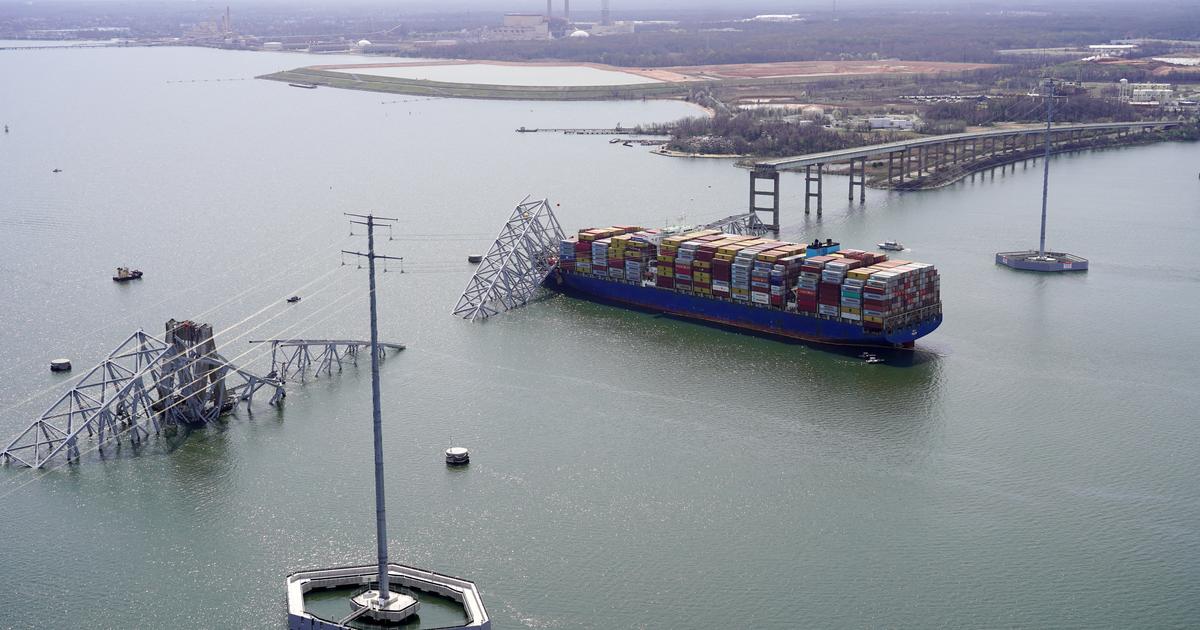Enlarge image
Container ships off San Francisco:
Freight shipping is not keeping up with the boom in world trade
Photo: JUSTIN SULLIVAN / Getty Images via AFP
Global freight transport has been working at its limits for months - and according to experts, not much will change that quickly. He expects the situation to remain tense throughout 2021 and well into 2022, said
Dirk Baldeweg
, managing director of the container company Buss Capital Invest in Hamburg, the manager magazin. The global transport backlog will not dissipate until the Chinese New Year celebrations in February 2022, said
Bob Biesterfeld
, head of the world's largest freight broker CH Robinson Worldwide, the Bloomberg news agency.
It is a mixture of different causes that led to a state of emergency in global transport: the world economy is recovering from the pandemic, the export engine is buzzing in China, and in the USA national consumerism has reawakened. The upswing is causing an enormous demand for transport capacity. At the same time, these capacities have grown only moderately due to the shipping crisis in recent years, and they are hardly sufficient for the increased demand.
In addition, there are still the effects of the Corona crisis, which repeatedly cause interruptions in the supply chains.
In May, Chinese authorities closed one of the country's most important ports near the industrial metropolis of Shenzhen for a few weeks due to a corona outbreak.
The result was a disruption of global shipping traffic, which is likely to have a greater impact than the blockade of the Suez Canal by the container giant "Ever Given".
For months, dozens of container ships have been bobbing in front of important ports around the world, waiting for clearance.
Many crews have also been waiting for weeks to be replaced due to the coronavirus - a situation like in the crisis year 2020. Freight space, it seems, is currently one of the most valuable assets in the global economy.
Freight prices are rising rapidly
This can also be seen in the price trend: while the transport of a 40-foot standard container from China to Europe cost less than $ 2,000 a year ago, it is currently more than $ 13,000, reports Bus Capital Managing Director Baldeweg. "However, that is only the price on the so-called spot market, where spontaneous contracts are concluded," says the market expert. "Anyone who has long-term transport contracts is currently not necessarily affected by this sharp rise in prices."
The charter prices for entire container ships rose at a similarly rapid pace.
Baldeweg reports on a freighter with 5000 spaces for standard containers (TEU), which was recently rented for three months at a charter rate of 300,000 US dollars per day.
"The charter rates have always been quite volatile, but that is an all-time high," says Baldeweg.
"The scarce availability of ships is clearly the sticking point in world trade at the moment."
This is also how CH Robinson CEO Biesterfeld sees it.
The global supply chain is suffering from a "dramatic lack of capacity" for ships, but also for trucks, trains, containers and warehouse workers, he told Bloomberg.
There is literally not a single area that does not suffer from misallocation or the like in some way.
Technology and electronics sectors hardest hit
These bottlenecks are already making themselves felt in many places in the German economy.
A survey by the Federal Association of Materials Management, Purchasing and Logistics (BME) among 166 companies is causing problems for the technology and electronics industry in particular because of the delays caused by the port closure in China.
According to a July survey by the Ifo Institute, almost 64 percent of industrial companies complain about bottlenecks in preliminary products such as computer chips.
This is now also having an impact on other industries: 60 percent of wholesalers and more than 42 percent of retailers complain about difficulties.
After all: companies of a corresponding size can resort to solutions like those recently chosen by the US home improvement chain Home Depot. Their management no longer wanted to stand idly by as the shelves in the markets emptied while at the same time there was no supply. Home Depot therefore chartered its own container ship. "We have a ship that belongs only to us and serves 100 percent Home Depot," announced company boss
Ted Decker
proudly on the US broadcaster CNBC.
However, in the opinion of Buss Capital boss Baldeweg, there will hardly be any empty shelves due to the crisis in global freight transport.
"Companies can change their priorities and, above all, move goods that are worthwhile despite the high transport costs," he explains.
"Other freight may then have to be transported in other ways."
According to the expert, the oceans should relax again by the end of 2022 at the latest.
"A lot of ships have been ordered," he says.
"Many of them should be in use by then and help solve the capacity problem."
cr








